
“The European Union election observers’ mission enjoyed freedom of access to all political parties, candidates, representatives from civil society and voters, as well as bodies and meetings of the electoral administration and to all relevant information on the electoral process,” the European Union Mission stated.
“It is the people of a country who ultimately determine the credibility and legitimacy of an election process.”
In an 89-page report on the polls, the EU’s observers said, “A strong democratic commitment was demonstrated in the 2013 elections by the state authorities of Pakistan, civil society, political parties and voters.”
However, the EU Election Observer Mission has included 50 recommendations for election reform in Pakistan after observing the polls last year. In these recommendations, 17 are considered to require changes in the primary legislation and seven assessed to require constitutional changes. The mission in its report recommended that the ECP fully implement its five-year strategic plan.
Data obtained by The Express Tribune reveals that more than 50,000 domestic independent observers of 70 organisations and 542 international observers of 27 organisations monitored the 2013 elections. Over 275 international journalists from 117 international media organisations and 5,000 local journalists also covered these elections, official data further revealed. Even so, many political leaders, particularly the Pakistan Tehreek-e-Insaf’s Imran Khan, say that the incumbent parliament is the result of fraudulent polls.
PILDAT and FAFEN weigh in
“Pakistan witnessed the best elections in its history last year,” said Executive Director Pakistan Institute of Legislative Development and Transparency (PILDAT) Ahmed Bilal Mehboob. He felt international observers enjoyed “too much freedom” while covering the elections here and were fully accommodated by the ECP. “We did not receive any complaints from observers,” he said. PILDAT did not find evidence of “any centrally systematic plan to rig last year’s elections” either, he said.
The Free and Fair Election Network deputed more than 40,000 observers during these elections, claimed Chief Executive Officer, Muddassir Rizvi. He endorsed Ahmed Bilal Mehboob’s claim, saying, “Observers operated independently to monitor these elections and despite militant attacks, the country ratified fair elections as compared with its previous elections.” Muddassir recommended a more fair and systematic mechanism for the electoral process though.
The ECP’s stance
“These were the best polls in Pakistan’s history,” insists ECP secretary Ishtiaq Ahmed Khan. International observers were welcomed to the country after the foreign office and interior ministry confirmed security. Large scale reforms were introduced, following recommendations of national and international organisations, he said and the ECP implemented 80 per cent of objectives under a strategic 2010-2014 plan.
However, the ECP secretary admitted, “There is always room for improvement.” Thus 400 recommendations prepared by national and international organisations have also been handed over to the special electoral reforms’ committee, Khan said.
The PTI’s opinion
The EU observers’ report is “superficial and perhaps based on narrow observations,” stated PTI senior leader Asad Umar. “It is almost impossible for a small delegation such as the EU’s to monitor thousands of polling stations and then have a final say on the 2013 elections.” Another PTI leader Omar Cheema said he has serious concerns with the EU’s report as “all political parties to some extent agreed that the May 11 polls were, in one way or another, rigged.”
Similarly, former ECP secretary Kanwar Dilshad, who served during the 2008 elections, termed the EU’s report “misleading and contrary to the facts”. Dilshad claimed the 2008 elections “were the best and first democratic elections in Pakistan” and said he would challenge the report at the EU’s headquarters in Brussels.
Published in The Express Tribune, October 21st, 2014.
COMMENTS (5)
Comments are moderated and generally will be posted if they are on-topic and not abusive.
For more information, please see our Comments FAQ













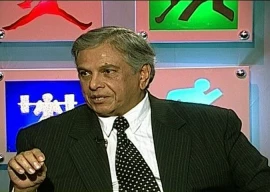

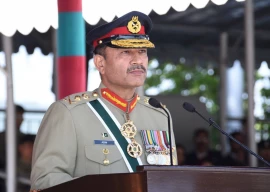
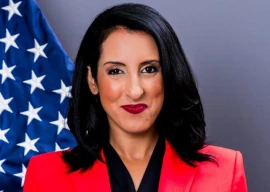
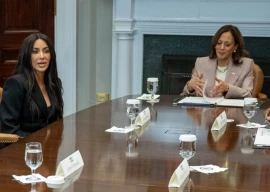
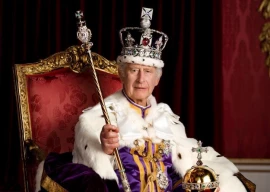











1714024018-0/ModiLara-(1)1714024018-0-270x192.webp)









Did the author of this article even read the EU report apart from line 1 of the executive summary? This is incredibly poor, propaganda-inclined journalism. The report is far from congratulatory on the 2013 elections. For every intelligent person that can read (I trust the author isn't one), the report is available at http://www.eueom.eu/files/dmfile/eu-eom-pakistan-2013-final-report_en.pdf
The report says, and I quote: 1. No Transparency: "Requirements for transparency were not met. For example the legislation does not provide for observer access and for results information to be made publicly accessible. Furthermore the ECP did not always make information of public interest easily available and in a timely manner. For example notifications of ECP decisions, data on changes to the polling station scheme, and results records." 2. Lack of ability to determine rigging because of *no transparency:* "The lack of availability of crucial data from the ECP on polling stations, numbers of registered voters, and individual polling station results, reduced confidence in the process and opportunity for complaints to be lodged and addressed in a speedy manner. Furthermore it prevents full analysis of results and rigging allegations, thereby precluding full identification of issues arising. EU EOM observers noted shortcomings in the completion of results forms and some polling stations with questionably high levels of invalid ballots." 3. Partiality of ROs: "The ECP continues not to directly manage key aspects of election administration. Most notably delegating essentially unchecked authority to ROs, who have lead responsibility for the elections at the constituency level. The ECP continues to recruit ROs for general elections from other state agencies, rather than from its own ranks. " 4. ECP's incompetence calls elections into question: "This goes against the spirit of article 19A of the Constitution which refers to “access to information in all matters of public importance”, the UN Human Rights Committee’s comments on giving effect to the right of access to information, and also the Convention Against Corruption which notes that “each State Party shall… take such measures as may be necessary to enhance transparency in its public administration, including with regard to its organization, functioning and decision-making processes” 5. On FAFEN's lack of credibility in this: "The credibility of FAFEN’s election work was somewhat marred by their 13 May citing of 49 polling stations with more than a 100% turnout, based on the ECP’s supposedly final scheme of polling stations (which includes the number of registered voters). The lack of updated information on any changes in the polling scheme, fundamentally compromise observers’ ability to provide meaningful scrutiny and analysis. FAFEN then retracted its statement on the 49 stations and instead issued strong indictments of the ROs’ changes to the polling scheme and called for transparency in ECP election results management."
Mr. Zahid Gishkori, you should know that the first line of an executive summary does not a report make! What a pathetic article. Please don't shy away from posting my comment. Admit your ridiculous mistake.
It is the people judgement that the 2013 elections were massively rigged. That is why such a large number of people are with IK and TUQ and have participated in dharnas and public meetings.
Biggest tragedy is our politics is - NO ONE ACCEPTS HIS DEFEAT
How can one accept these reports when the elected officials themselves admitted in the parliament that there was massive rigging in the elections? Aitzaz Ahsan said so in his speech and was not met with any protest by PMLN.
At the end of the day its the people who determine credibility of a process, and its a known view in Pakistan that elections are always conducted sans fair play.
A litmus test of the "best elections in history of Pakistan": did ECP discharge its responsibility of punishing those clearly visible in rigging videos?